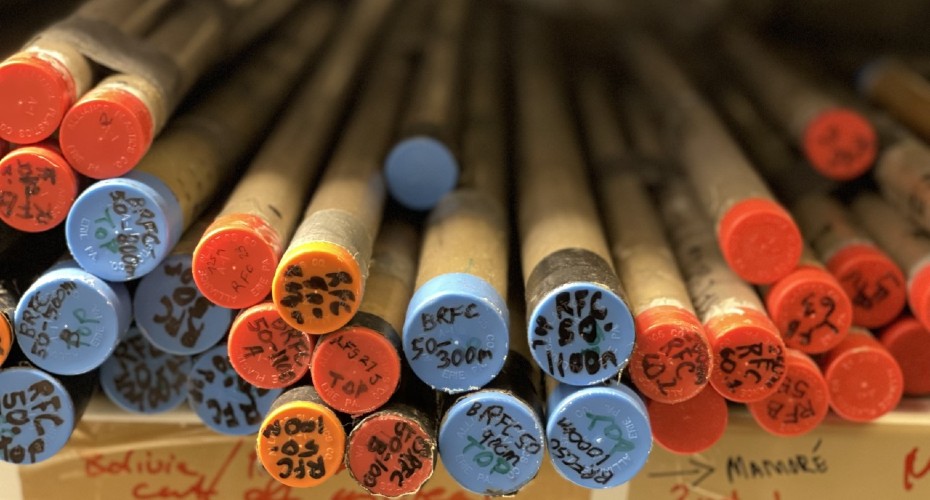Development Fund 2022/23: The Life and Afterlife of Extraction
Dr Thomas Roland (Geography) - The Life and Afterlife of Extraction: Exploring a practice of honouring kinship relations in the collecting, holding and disposing of past ecologies that story landscapes
Overview
This project seeks to broaden the discussions of decolonising museology to consider ‘natural’, as well as cultural, collections. It highlights that the removal of fossils and artefacts by archaeologists and palaeontologists is coming under increasing public and academic scrutiny, with calls being made for restitution. As the ethics of ‘natural’ collections is being questioned further and further, new debates are opened up in the field of palaeoecology – it is here that the anticolonial work of this project has its focus. Looking through a decolonial lens, this project’s multidisciplinary team aims to present an alternative way of thinking when collecting kin, be they land, flora, fauna or ancestors - one that meaningfully considers the stories they tell and their living relationships with Indigenous nations. Working across disciplines of museology, anthropology, palaeoecology, and geography, this project will explore where new thinking is needed to enable conversations that hold space for Indigenous rights to be upheld.
Aims & Activities
‘The Life and Afterlife of Extraction’ has two key objectives:
- To reveal colonial approaches to the collection, treatment, storage, and disposal of samples in palaeoecological research
- To deliver practical recommendations for researchers on best practice for decolonising the treatment of palaeoecological samples
Dr Roland, Prof Onciul and Prof Thomas hope to achieve these through a number of activities, including a programme of interviews, online workshops, a student internship and article writing. They intend to publish the articles in two journals (GEO and Quaternary Science Reviews), with the hope of impacting a change in practice within the palaeoecological community, encouraging research teams to work with equitable practices and develop collaborative relationships with Indigenous communities.
The team anticipates that an application to a UKRI funding body will be made within one year of the project’s completion.
Dr Thomas Roland is a Lecturer in Physical Geography at the University of Exeter and researches as an environmental scientist working at the nexus of palaeo- and contemporary ecology.
Prof Bryony Onciul is an Associate Professor of Museology and Heritage Studies at the University of Exeter who researches and publishes on Indigenous rights, decolonisation, and environmental justice.
Prof Nicola Thomas is a Professor of Historical and Cultural Geography at the University of Exeter who researches histories of geography and science, and historical geographical methodologies and archival approaches.




